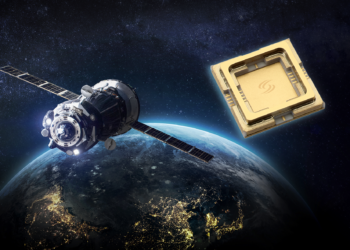The advanced semiconductor technology firm, Samsung Electronics has received the industry’s first Triple Standard for carbon, water, and waste by Carbon Trust.
The certification was awarded to Samsung for reducing the amount of carbon emissions, water use, and waste discharge over the past three years at five operations (Giheung, Swaseong, Pyeongtaek, Onyang and Cheonan) in Korea, and four global manufacturing sites in US, and China (Austin, Suzhou, Tianjin and Xi’an).
“For decades, Samsung has been striving to incorporate environmental sustainability into every aspect of the semiconductor manufacturing process,” said Seong-dai Jang, senior vice president and head of DS Corporate Sustainability Management Office at Samsung Electronics. “We’ll continue to pursue more environmentally sustainable policies across the entire production and supply chain.”
Reducing carbon emission, water resource conservation and recycling have been Samsung’s important sustainability goals. The company has undertaken various efforts to reduce its environmental footprint.
- Greenhouse Gas: Since 2019, the company has been sourcing 100% renewable energy for its overseas semiconductor operations in the US and China. The company also optimizes gas used for etching and deposition processes apart from developing new catalysts for its greenhouse gas reduction equipment. These endeavors together helped Samsung to cut about 1.3 million tons of carbon emissions in 2020.
- Water Management: The company has been recycling wastewater generated in the process of producing ultra-pure water for equipment such as wet scrubbers and cooling towers. It has also reduced water utilizing its wastewater filtration technology called membrane process to reuse water and optimize manufacturing processes. Consolidating wastewater reclamation and reuse systems also helped Samsung increase equipment operation efficiency. Such efforts resulted in Samsung reusing about 70 million tons of water in 2020, a 12% increase compared to 2018-19, and reduce more than 10 million tons of water usage.
- Waste Discharge: Samsung has significantly reduced wastewater sludge, which accounts for over 60% of total waste generation, by applying alternative materials and optimizing the amount of materials supplied to particular facilities. The company also established packaging standards for products into the line, which reduced waste from over-packaging. This led Samsung to reduce a total of 35,752 tons of waste discharged in 2020.







